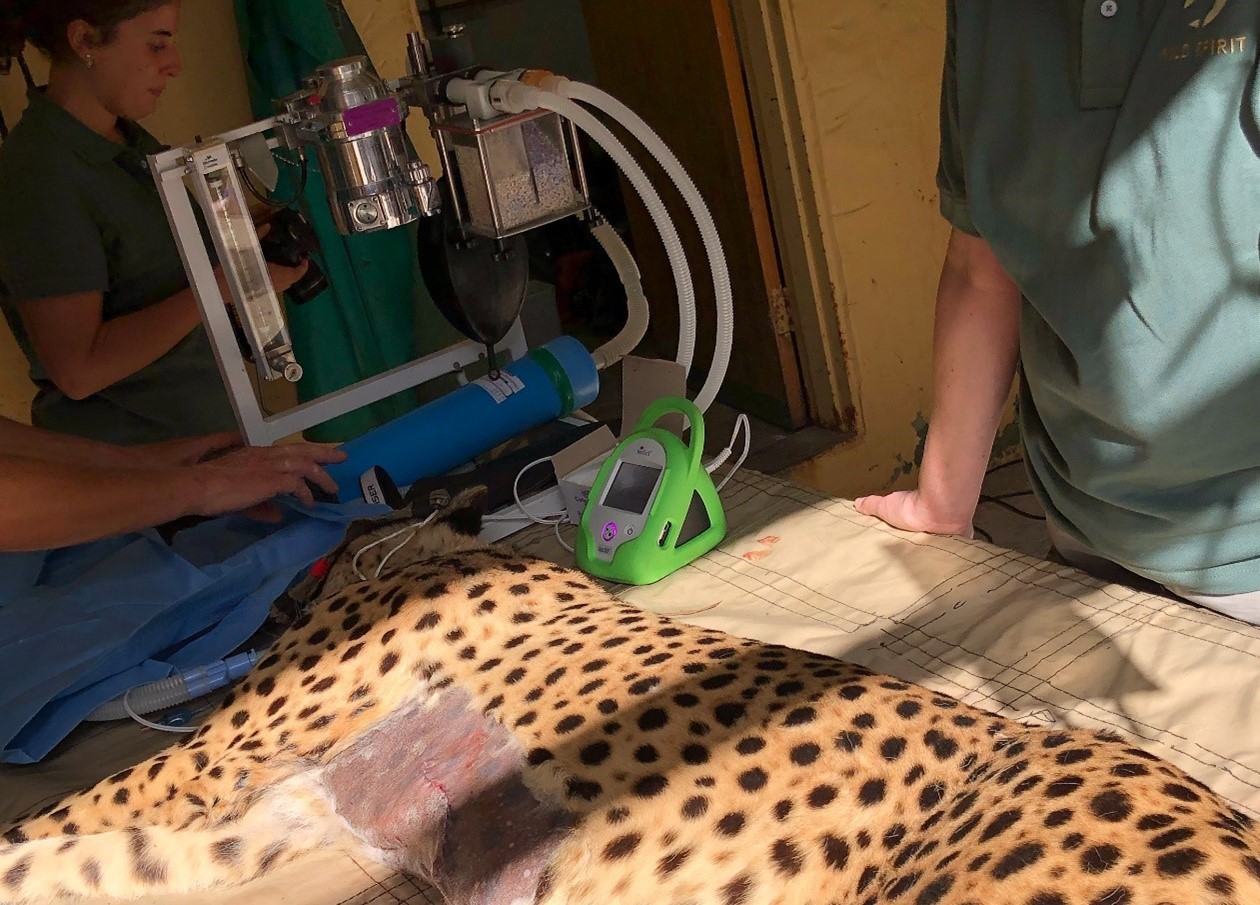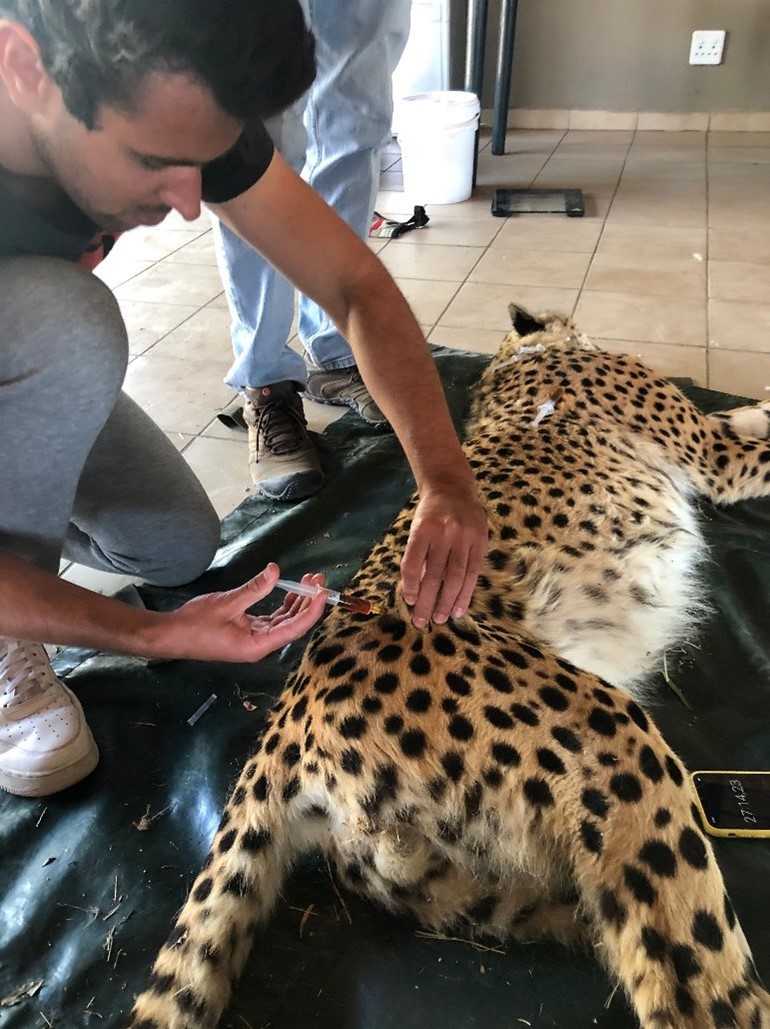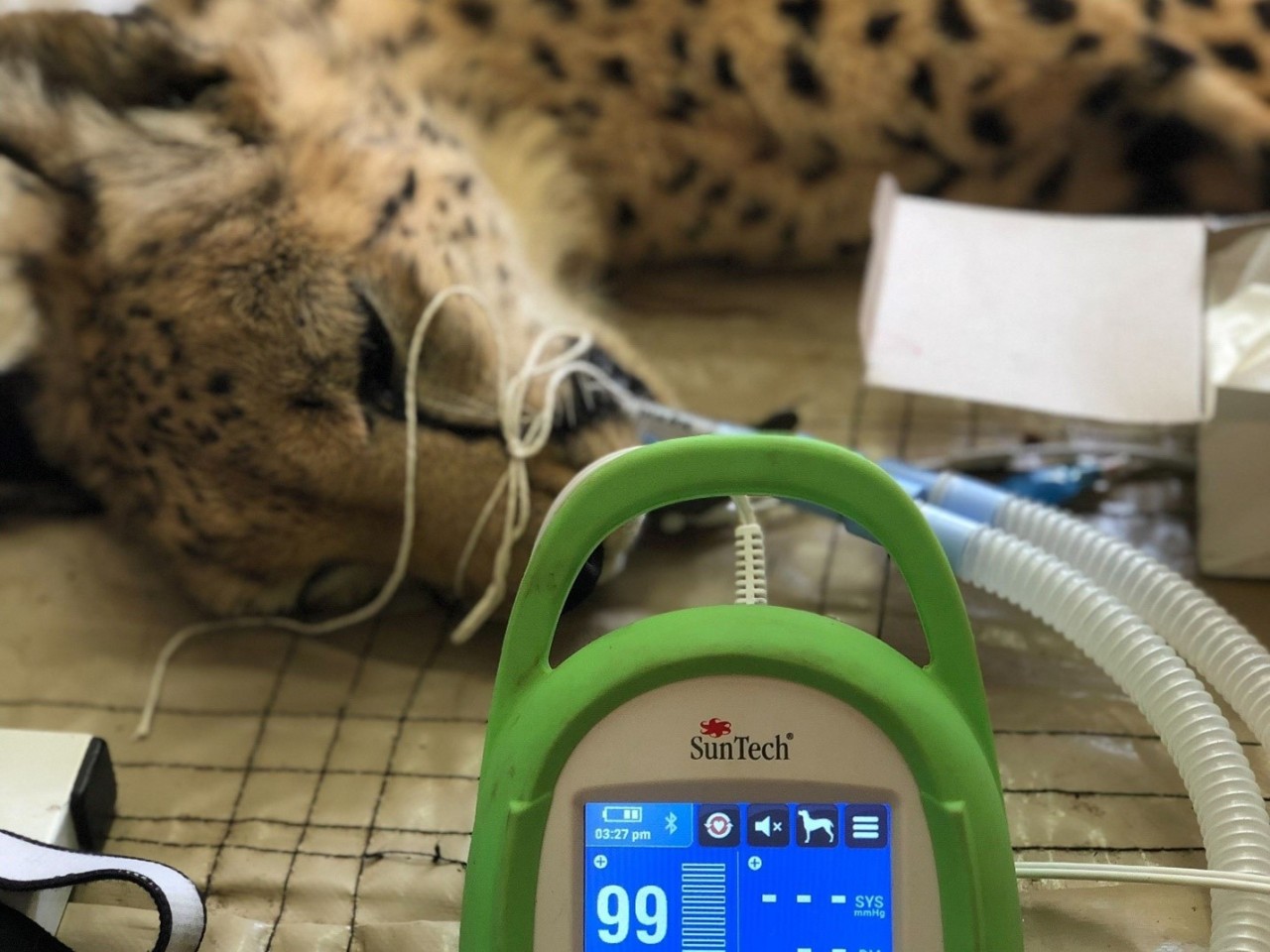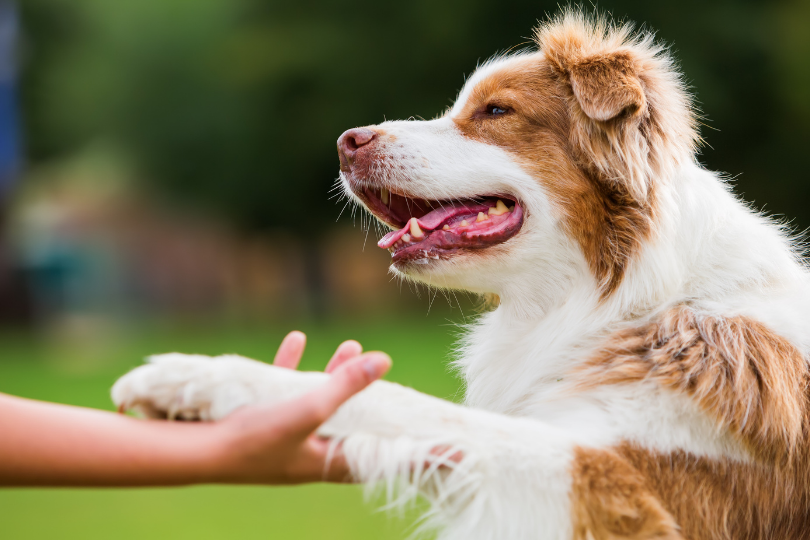![]()
Blog @ SunTech
Advice from the BP Measurement Experts
Vet30 in the Wild Series: Cheetahs
By Dr Fabiola Quesada, DVM MsD MRCVS
Veterinarian
Co-Founder & Executive Director Wild Spirit Fund
CEO Wild Spirit
Background
Dr. Fabiola Quesada, DVM MsD MRCVS, is the Co-Founder & Executive Director at the Wild Spirit Fund. Wild Spirit Fund is a non-profit organization, born out of a decade of work in Africa and led by an international network of wildlife professionals, scientists, and veterinarians. Based in South Africa, their mission is to ensure the health and protection of wildlife in the natural ecosystem in which they live.
Wild Spirit Fund is based on the scientific movements of "Wildlife Conservation Medicine" and "One Health"; the former aims to identify the impact of the human footprint on the natural ecosystem; both assume the intimate correlation between the health of ecosystems, animals, and humans.
Together with an international network of wildlife professionals and veterinarians, Dr. Quesada aims to create the infrastructure and training required to conserve endangered wildlife populations in their natural ecosystem, which consequently protects human health as well.
To learn more about the Wild Spirit Fund, please visit https://www.wildspiritfund.org/.
Vet30: Driving Success in Diverse Environments
Wildlife veterinary medicine is one specialization that requires you to think on your feet. During our wildlife vet training program in South Africa at Wild Spirit we work with a wide range of species from small suricates to birds, big cats and mega-herbivores, and under the most unpredictable circumstances. In most cases, the patient must be under anesthesia, and the physiological differences between the different species we work with presents a unique challenge. There are 3 factors that are crucial for success in this type of environment: knowledge, experience, and reliable equipment.
The diversity of anatomy, physiology, and field conditions requires a versatile, portable, and reliable anesthesia monitoring machine. After years of using different brands, we started using SunTech Vet30 four years ago, and it is by far the most accurate and robust we have ever used.
The SunTech Vet30 covers a wide range of required parameters and comes with numerous accessories of different fits and sizes that make it possible to use in several species. Our accessories include 8 blood pressure cuffs, 2 pulse oximetry sensors (1 clip, 1 rectal/reflectance), 1 temperature sensor, and 1 extension cable.
As a guest author, I am excited to share some cases from over the past few years where the Vet30 has been particularly helpful. In this 3-part series, we will focus on big cats, starting first with a cheetah from South Africa.

Cheetahs
There are only 7,100 cheetahs in the wild, and many of them are facing considerable, modern challenges. The threats these big cats face include poaching, snaring, habitat loss, human settlement encroachment, and disease. These threats unfortunately are all related and are a part of the human-wildlife conflict that endangers cheetahs. Generally, as the human population grows and expands into areas where there was once wildlife, the greater wildlife is affected.
In South Africa, there is a population of cheetahs kept in captivity at rescue centers, some of which are more reputable than others. The cheetahs we work with are in a rescue center that are not intended for breeding, where the money that is made is only used to sustain the animals rescued. These cheetahs are kept in large enclosures and are generally kept alone as they are solitary animals, with a few exceptions.
| Patient: | Cheetah |
| Location: | A reputable rescue center. South Africa |
| Date: | Wild Spirit Vet Course 2021 |
| Case: | Surgical removal of the subcutaneous lump |
| Anesthesia: |
Intramuscular chemical: For capture and transport Inhalation anesthesia + oxygen + IV infusion: For maintenance during surgery |
| Anesthesia Monitor: | SunTech Vet30 |

In this rescue center, the cheetah had a growth that we needed to remove the growth for pathology and analysis.
Cheetahs are one of the most sensitive big cats to anesthesia. Acute deaths during capture and anesthesia are related to cardiorespiratory suppression and hyper or hypothermia. Chronic deaths are related to kidney failure due to compromised perfusion during anesthesia.
Therefore, along with the right drug combination and the capture technique, we need excellent monitoring of the SpO2, blood pressure, heart rate, and temperate makes all the difference in taking the required actions and saving the animal. This highlighted the importance of the SunTech Vet30 for monitoring vital signs, which allowed for a successful procedure.
Interested in getting more SunTech news, product info, as well as
tips, tricks, and insights from BP experts?
Sign up to get fresh content delivered direct to your inbox.




